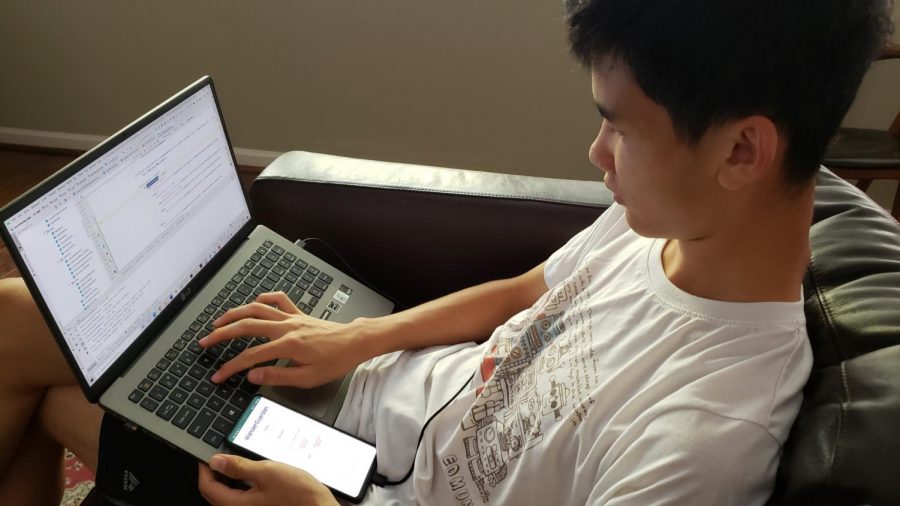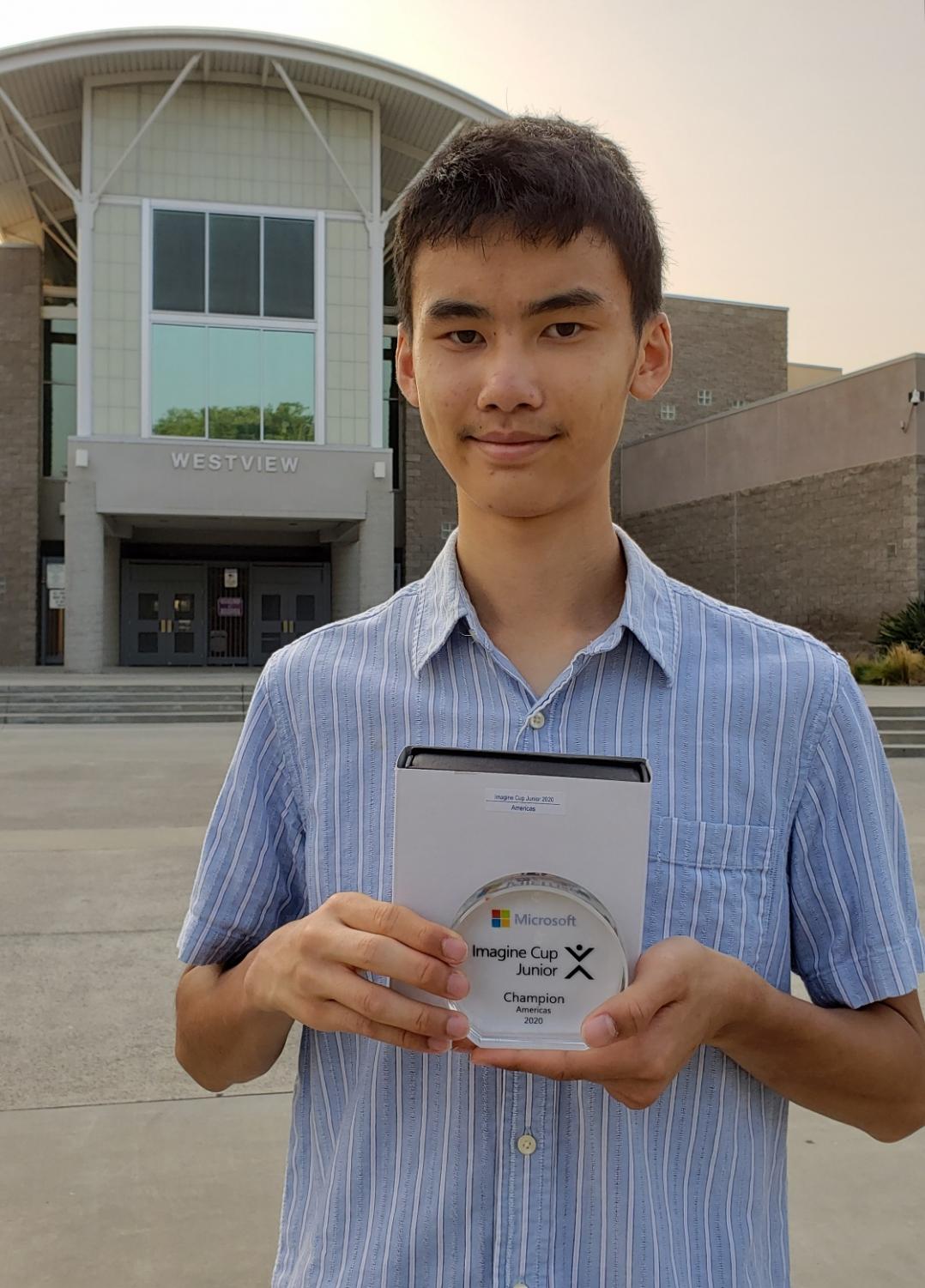Sumpena creates app to assist dementia patients, wins 2020 Microsoft Imagine Cup Junior Competition
October 22, 2020
Edmund Sumpena (11) has witnessed family members and friends struggle due to neurological disorders. He knows friends suffering with dementia, Alzheimer’s, and Parkinson’s disease who have wandered outside during the daytime and unknowingly put themselves in danger: walking onto busy roads, tripping over things—sometimes even leading to serious injury.
As a way to help those affected by chronic wandering due to dementia, Sumpena enrolled in the 2019-2020 Microsoft Imagine Cup Junior competition. This annual global challenge gives student competitors an opportunity to focus on using artificial intelligence (AI) to come up with ideas to solve social, cultural or environmental issues.
“This [was] my first time participating in this competition,” Sumpena said. “I gained experience in tackling real-world engineering problems using professional research methods.”
Registering with the intention of helping those impacted by neurological disorders, and after conducting market surveys with assisted living facilities to find out more about wandering, Sumpena decided to create WanderGuardian, a mobile app designed with a privacy protecting, sensitive, and adaptable machine learning algorithm.

“A caretaker sets up a predefined safe zone by training the app,” Sumpena said. “The device [the app is on] can remotely determine whether a patient is inside the safe zone or not. I have also implemented a wearable Bluetooth beacon to pair with the app. In the situation where a patient does not bring [their] phone, WanderGuardian will detect this pocket-sized device and determine whether the patient is in the vicinity.”
If the patient is outside of the safe zone, Sumpena said, then the app, using geofencing, will alert the caregiver, which allows WanderGuardian to act as an early-warning system to prevent possible consequences.
To create the app, Sumpena had to find which phone sensors to use, how to interpret the data, and how to make the algorithm “learn” over time.
“Figuring out how to fit the correct math, techniques, and concepts to create the best possible algorithm when building WanderGuardian was [my favorite part],” Sumpena said. “It is like trying to solve a giant puzzle.”
The challenge, open to competitors around the world, recognizes the top three submissions from each geographical area: Asia, the Americas, and the EMEA (Europe, the Middle East, and Africa). Sumpena’s WanderGuardian was one of the three innovations from the Americas that won the Imagine Cup Junior 2020 award.
Sumpena said he hopes to continue improving on his application before formally publishing it. Last June, when he initially began to work on his project, he was awarded a research grant from The Alliance of Chinese-Americans—some of the members who are assisting Sumpena test out his application.
“I hope to roll-out my technology to [the] group of alpha testers and get their thoughts and feedback on WanderGuardian,” Sumpena said. “I would like to fine-tune existing features of the app and gather ideas for further improvement.”
Sumpena plans on competing in next year’s Junior Cup, taking all that he learned from this year to further expand his knowledge in technology.
“I was very happy that I had won the award, since it was so unexpected,” Sumpena said. “I [feel] motivated and determined to continue my research and extend my app to the community for people who wander.”



